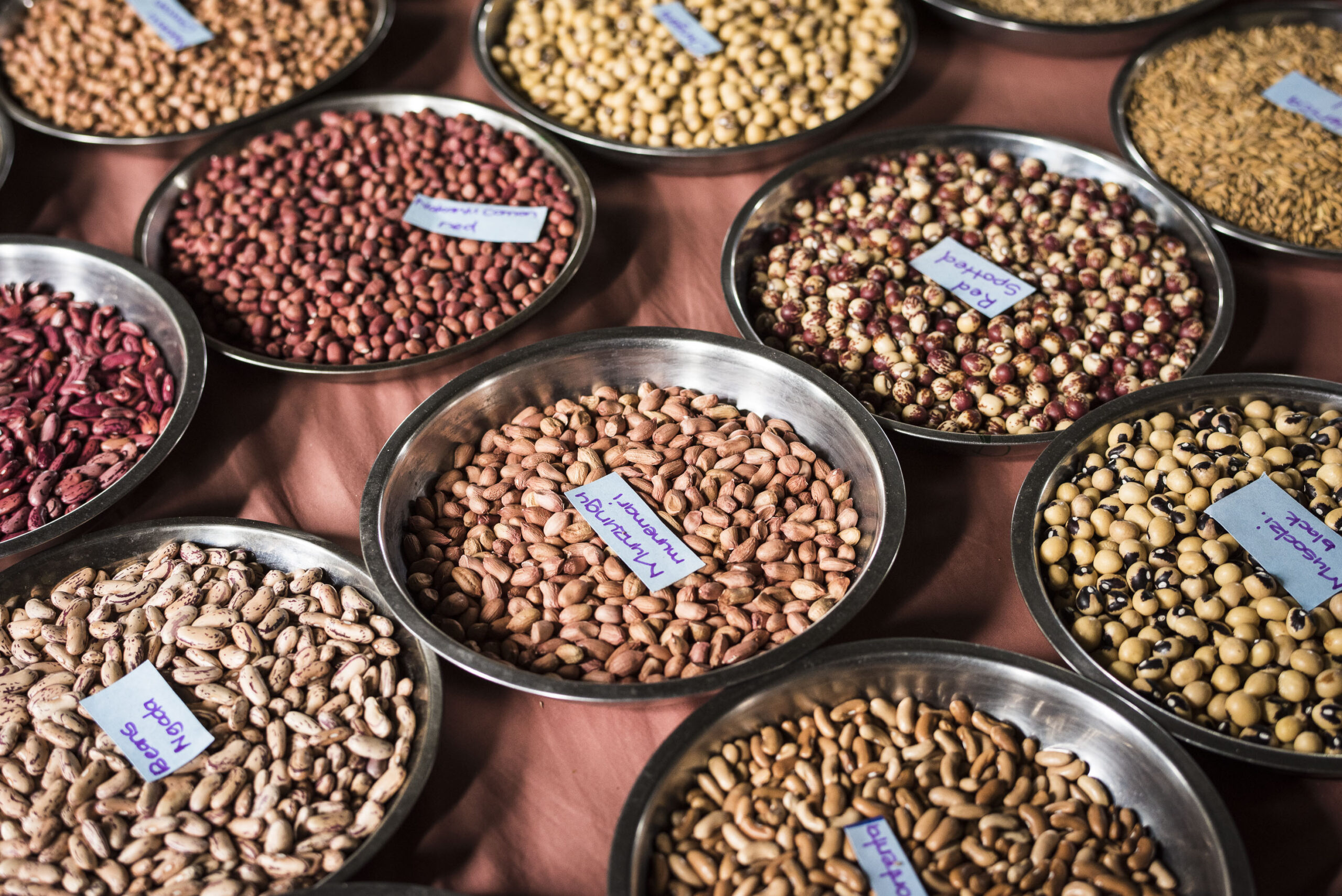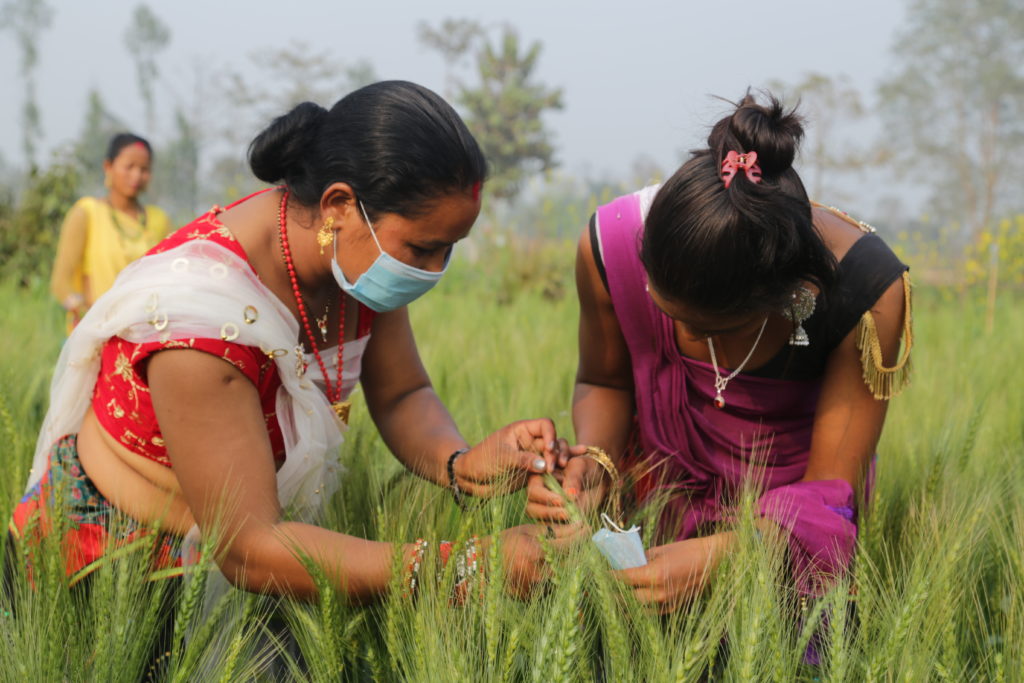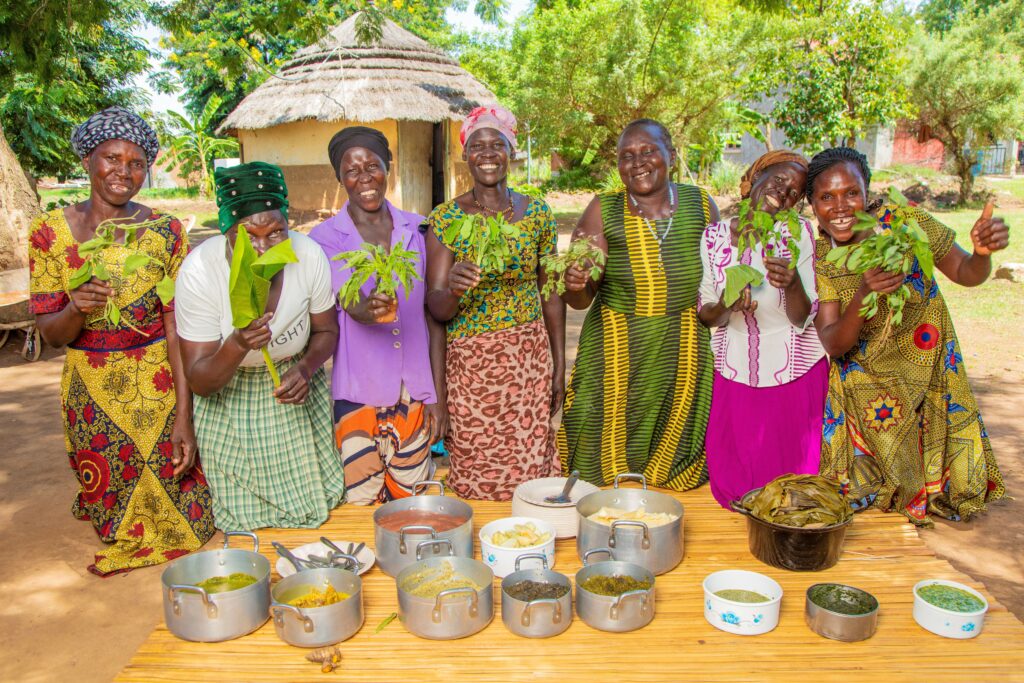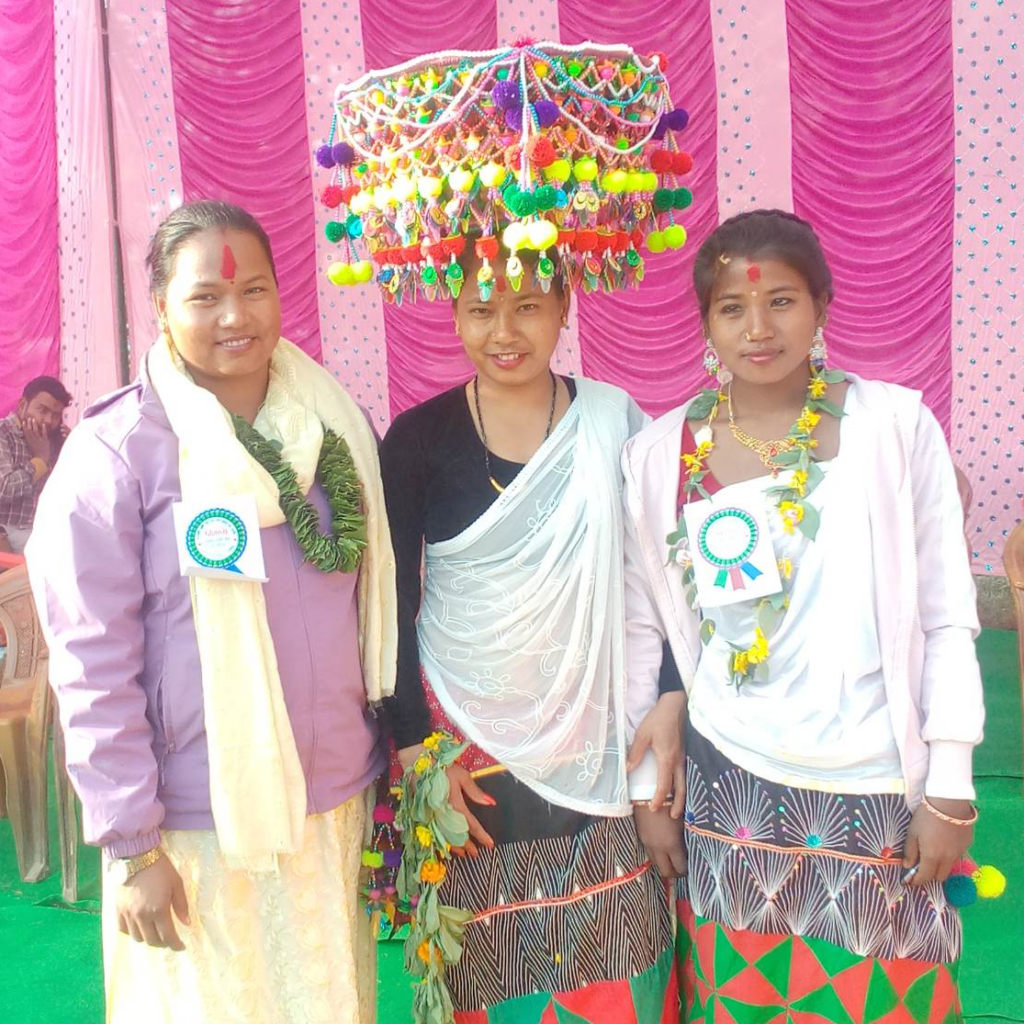By Manata Jeko and Pardon Sithole
The Government of Zimbabwe through the Permanent Secretary in the Ministry of Lands, Agriculture, Fisheries, Water and Rural Development (MLAFWRD) has pledged to fully utilize the services of Farmer Field School Master Trainers and facilitators trained under the SD=HS program with the support from Swedish International Development Cooperation Agency (Sida). The Permanent Secretary made the remarks at a recent graduation ceremony of a group of 21 Farmer Field School (FFS) Master Trainers in Harare. Professor Jiri, the Permanent Secretary of the MLAFWRD along with the CTDT Executive Director, Mr Andrew Mushita, the Director of Training in the Ministry, Mr S. Dlodlo and Mr Hilton Mbozi, the SD=HS Technical Advisor of Oxfam attended the event.
The FFS Master Trainer Curriculum
The twenty-one graduating Master Trainers in Zimbabwe undertook comprehensive and rigorous training, facilitated by CTDT and Oxfam Novib. The two organizations also co-developed the field guides for the trainers which were reviewed over a period of four years. The training included a two-week-long training and yearly refresher courses for both face-to-face and online covering the following:
- Setting up and organizing the Farmer Field School
- Diagnostics and setting up of study objectives
- Breeding techniques -Participatory Variety Selection (PVS), Participatory Variety Development (PVD), Participatory Variety Enhancement (PVE)
- Seed production
- Business Canvas Model
- Nutrition and Management of local food plants
The major objective of the training curriculum was to equip the Master Trainers with practical knowledge and methodologies on participatory adult learning techniques that allow them to facilitate active engagement and learning-sharing and apply innovative tools and exercises which enhance the learning experience. The training has also supported the farmer facilitators to grasp agricultural concepts and skills effectively, enabling strong leadership, facilitation, and mentorship skills, and enhancing the patience and empathy which allows facilitators to work closely with farmers.
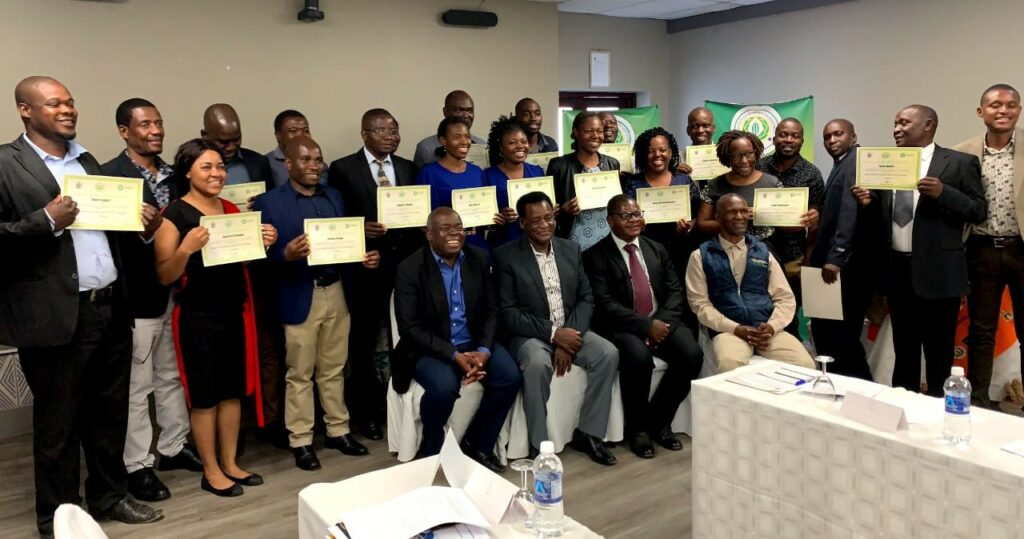
The FFS Master Trainers from Zimbabwe at the graduation ceremony
Government commitment to utilize Master Trainers in its FFS roll-out program
During the graduation ceremony Professor Jiri said that, as a result of the government’s bold commitment to adopt the FFS as one of the key extension methodologies in 2022 and the adoption of the directive that all government extension staff must use the FFS as the key strategy in extension delivery, there is a need for the government to utilize this pool of FFS Master Trainers to achieve the government plan of setting up 35000 FFS in Zimbabwe. The target is to have an FFS in each village so that farmers become self-sufficient in terms of seed.
Master Trainers work with FFS have transformed Agriculture in Zimbabwe
In the closing remarks at the ceremony, the Director of Training in the MLAFWRD, Mr Dlodlo said that, because of the Master Trainers’ work with facilitators in the FFS, there has been a remarkable transformation in the farming communities and that farmers have become more resilient, adapting to climate, and diversifying their crops. He also mentioned that it was encouraging to note that farmers have taken charge of their own seed production and marketing thus reducing dependency on external sources of seed. Regarding the impact of the work of master trainers, facilitators, and Farmer Field Schools, he emphasized going beyond the individual farmers to entire communities contributing to poverty alleviation, increased food security and sustainable rural areas.
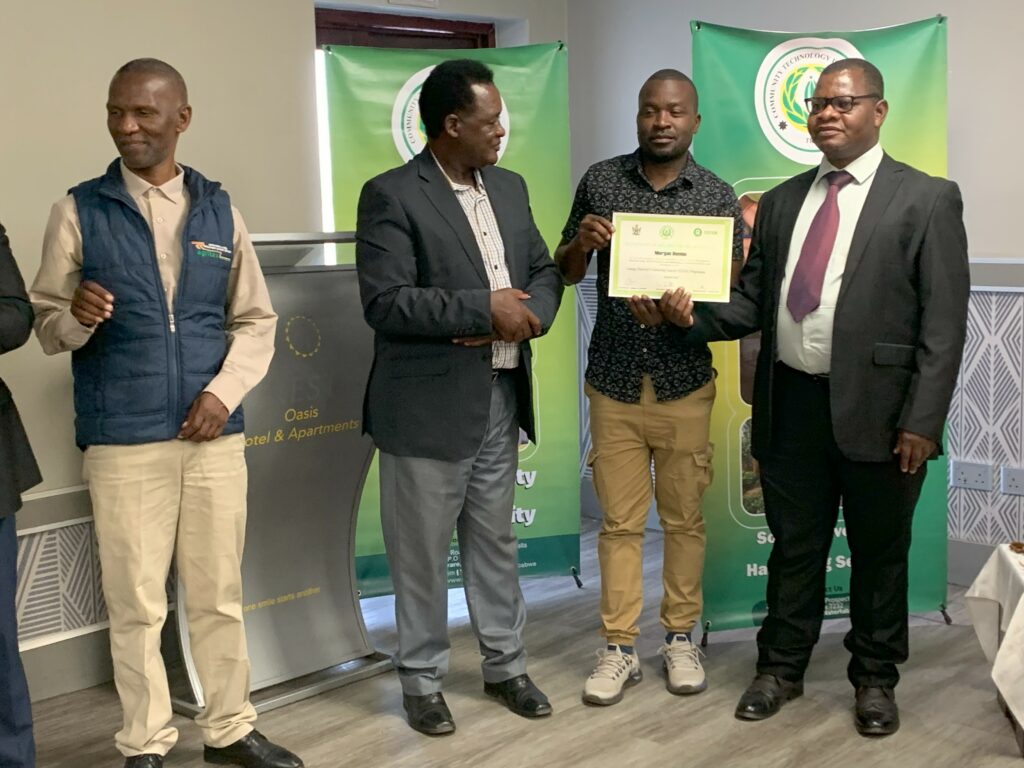
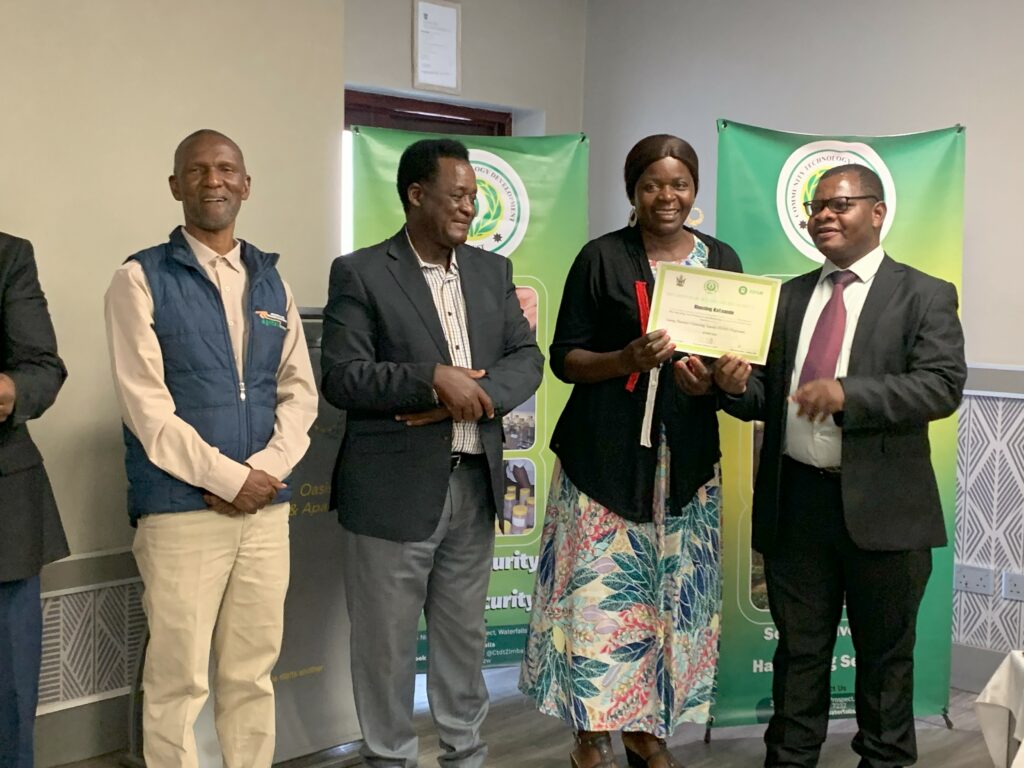
Photos of the FFS Master Trainers receiving the certificate

